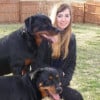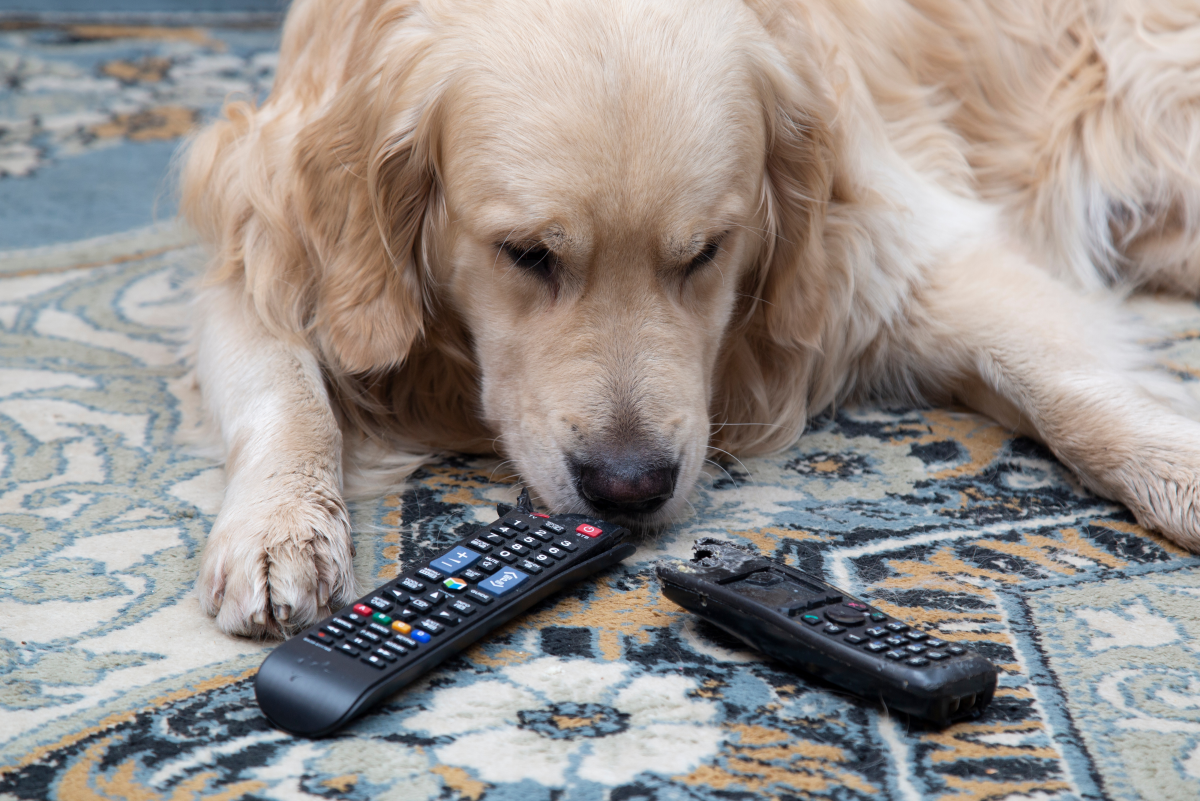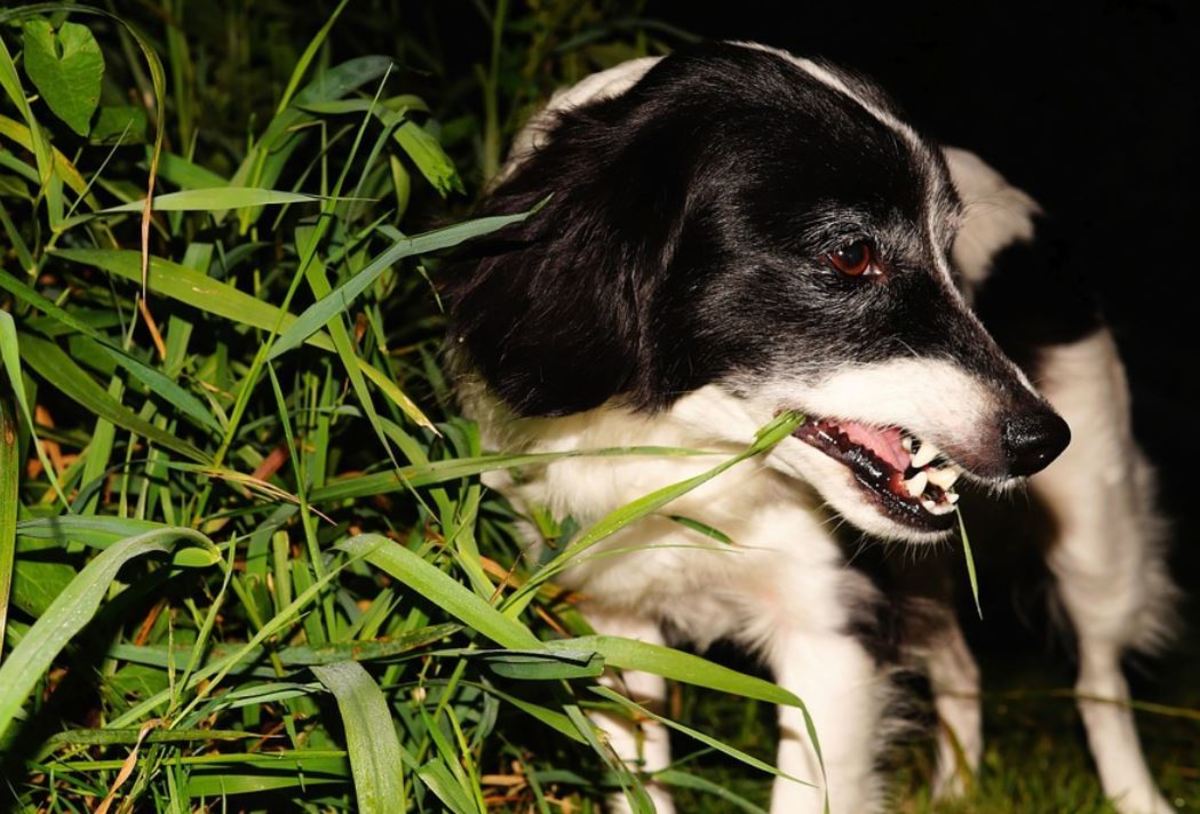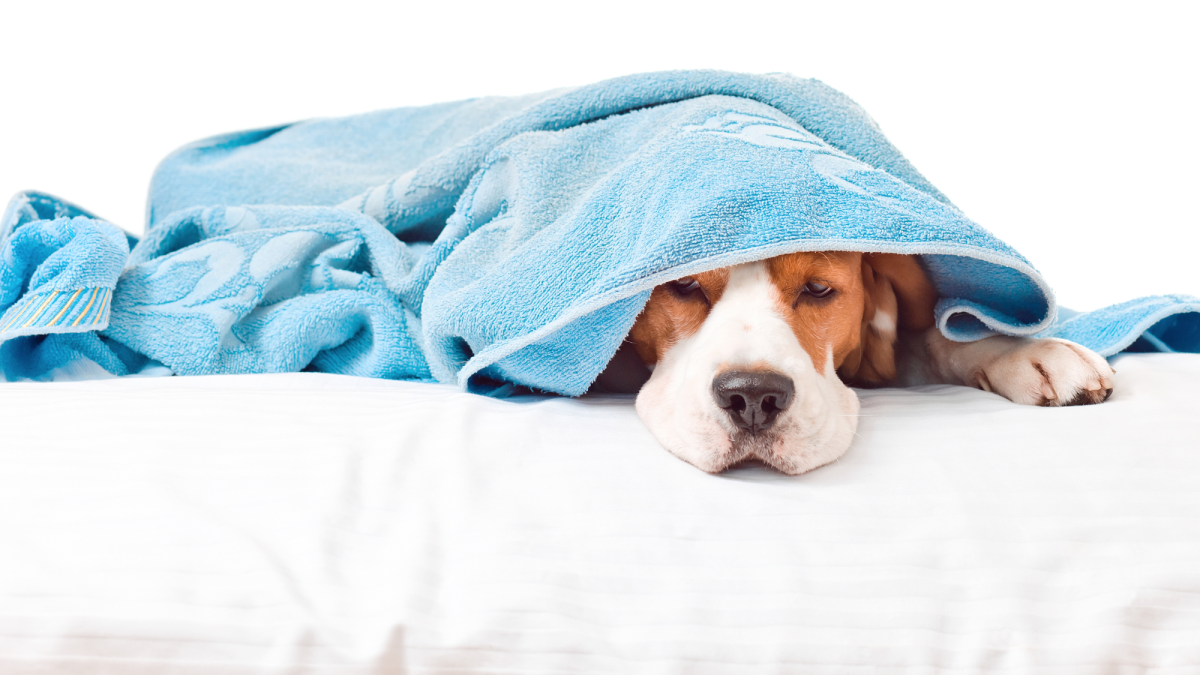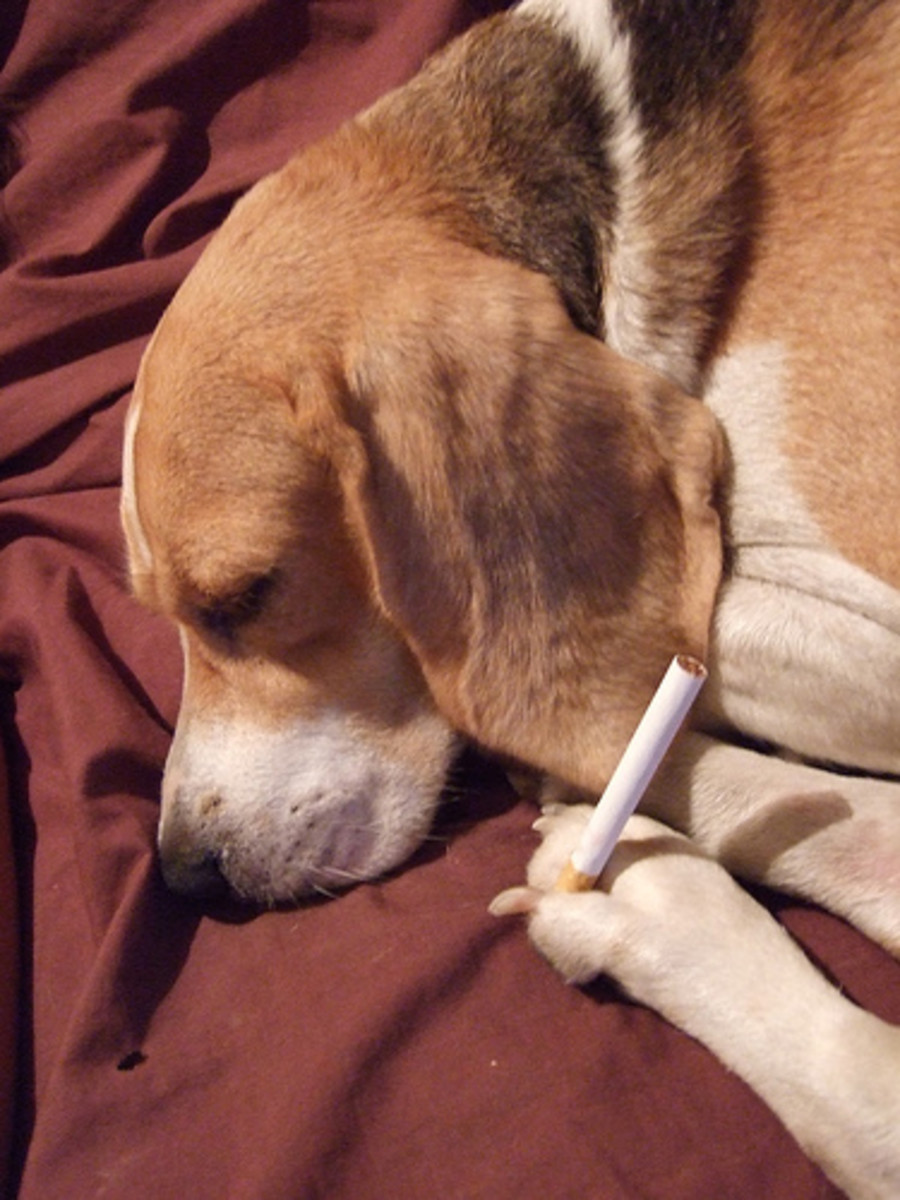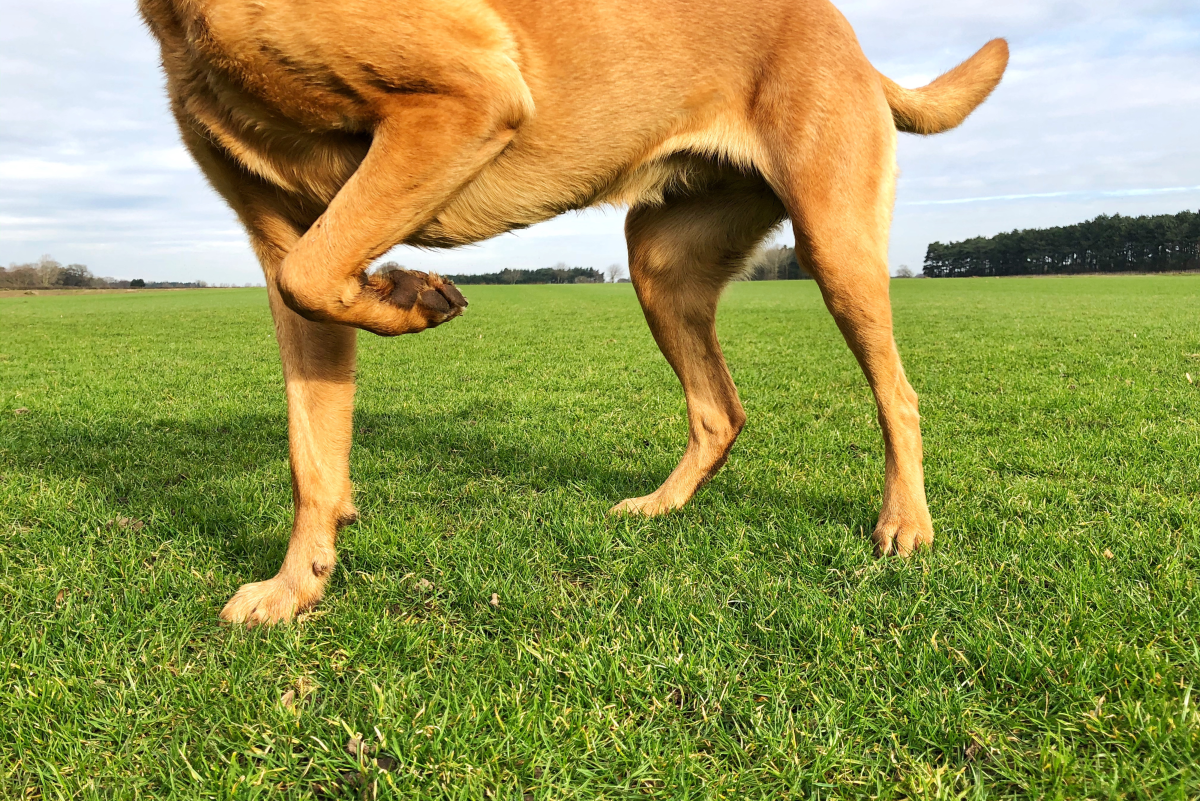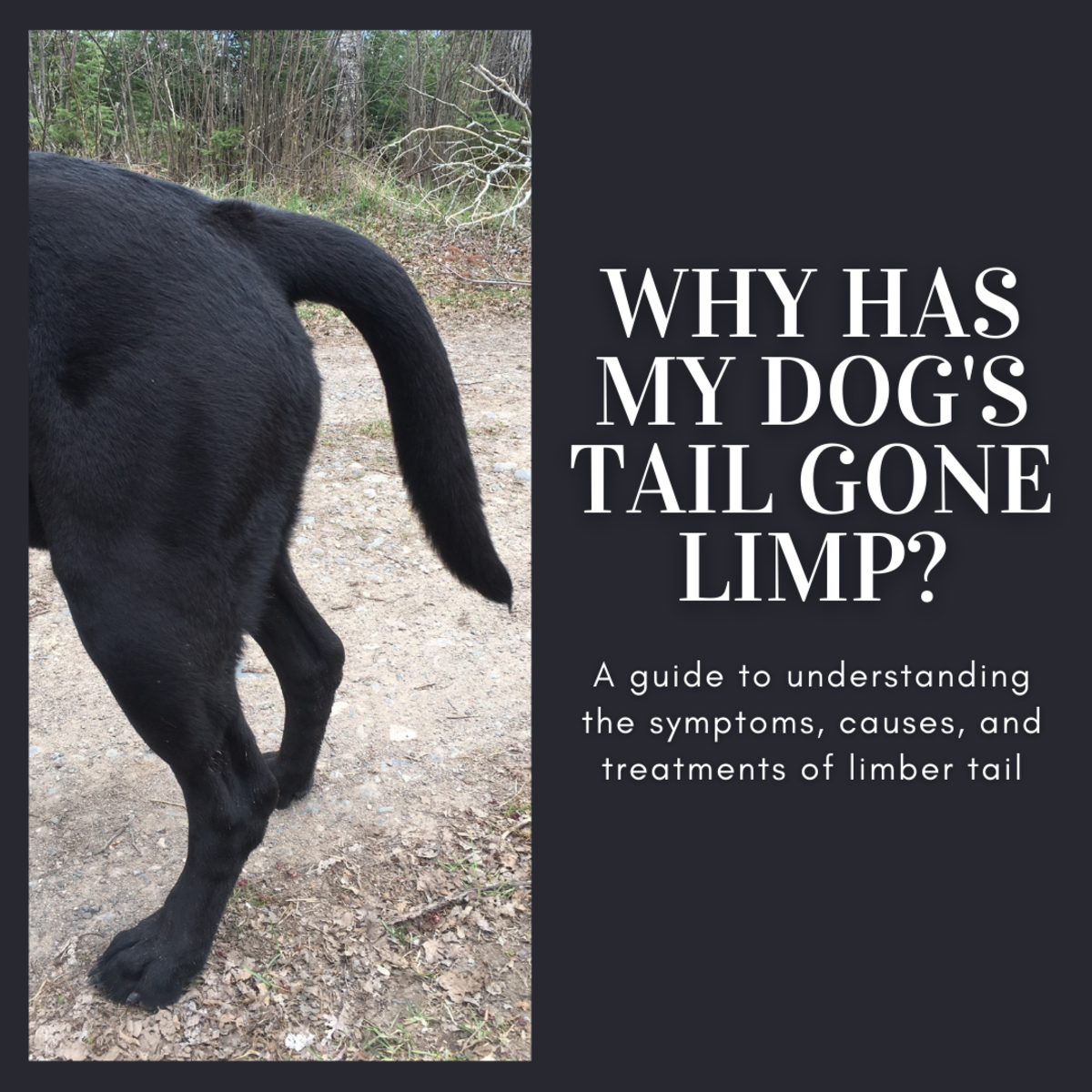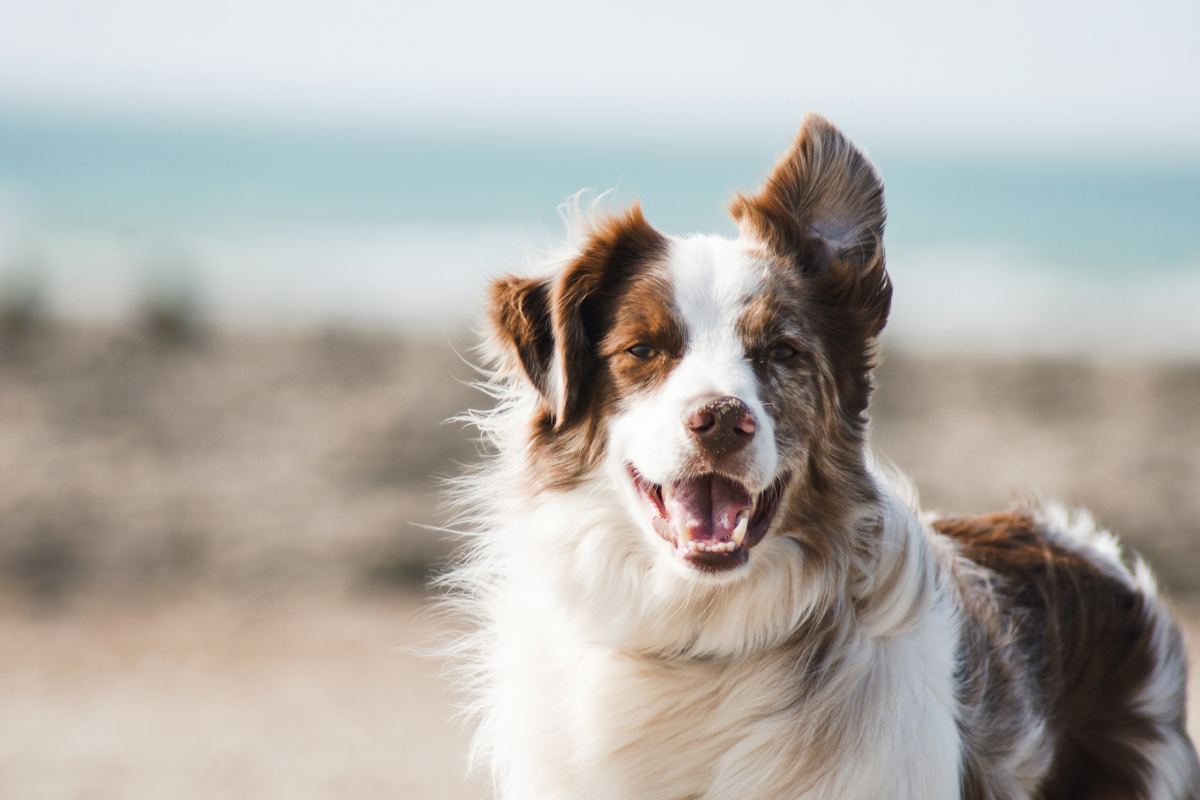Christmas Foods to Avoid Feeding Your Dog

Why Not Share some Christmas Leftovers with Your Dog?
Everybody is enveloped more or less in the Christmas spirit and it seems natural to want to share some Christmas foods with your dog. Obviously, those pleading eyes and little drool won't help much in ignoring your dog as you place that big turkey on the table. Yet, keep in mind that the days after big holidays are also the busiest days at vet clinics and emergency animal hospitals. Why? Because dogs were often offered foods that they shouldn't have, or between the hustle and bustle of the Christmas preparations the dog was left unattended and he got a hold of a tray full of baker's chocolate. Having worked for a busy animal hospital, I can attest that we got many cases of chocolate toxicity, pancreatitis, intestinal obstructions, bloody stools and lots and lots of V+D, which was simply an abbreviation meaning vomiting and diarrhea.
Many of these problems could have been avoided, if only a few precautions were taken. What may seem like an act of generosity could end up being a costly affair. Veterinarian emergency fees are expensive and if your dog must be left overnight, the costs could easily swipe all your saving if you don't have dog insurance. So please, exercise lots of caution this coming Christmas.
The first and foremost priority is management. If you cannot supervise your dog, confine him. If your your dog raids the trash can, keep the trash out of reach. If you must leave food on a table, close the door so Rover cannot get to it. If you have guests, let them know not to feed your dog their leftovers. And watch the kids: they are often to blame for sharing those chocolates and candies with the dog!
Christmas Foods to Avoid Feeding Your Dog
So you are preparing the Christmas meal, the family is all around the table, Christmas tunes are playing the Christmas tree lights are blinking and Rover is eyeballing those platters and sniffing those wonderful aromas wafting through the kitchen. It's so irresistibly tempting to just give Rover a little portion, almost as if he needs to be part of the Christmas spirit. These foods should be kept safely away and watch out for the naughty kids dropping some under the table!
- Greasy Foods
Too much fat or even just a bit in sensitive dogs can cause a bout of pancreatitis, especially in certain breeds such as miniature schnauzers, Cocker Spaniels, and yorkies. Don't let Rover lick that greasy pan you just used to fry bacon, leftover chicken skin or eat ham trimmings; the symptoms of pancreatitis are quite aggravating leading to loss of appetite, vomiting, hunched-up position, weakness, abdominal pain, diarrhea and dehydration. While an itsy bit of white meat from a turkey or chicken should do no harm, remember to remove the skin and bones and avoid feed ing dark turkey meat. "Feeding too much turkey may make dogs prone to a serious condition known as ''pancreatitis'', explains veterinarian Christina Frick, owner of Frick Veterinary Services in Larned, KS."
- Leftover Bones
This is often a problem of the "day after Christmas" when Rover gets into the trash can left unattended or opens a trash bag you placed outside and never thought Rover would open to unveil some goodies. Leftover bones can cause a dog to choke, if the dog doesn't choke it can scrape on its way down, and if it makes it with no issues, it may cause a potential dog intestinal blockage. If you suspect your dog ate a bone and he doesn't seem in distress, read "what to do if do if dog ate chicken bone" and "dog signs of an intestinal blockage." Obviously, if you suspect your dog ate a bone and he's not doing well, stop reading and go to the vet immediately!
- Chocolate
Most dogs owners are aware about the dangers of chocolate, but chocolate is so common that there are too many chances for something to go wrong. Whether Rover gets into a batch of brownies or a Hershey kiss, you may be worried dead about the outcome. The worst chocolate of all is unsweetened bakers's chocolate with the highest content of theobromine, then follows dark chocolate, milk chocolate and then finally is white chocolate. If your dog ate chocolate, call your vet immediately and be prepared to supply the type of chocolate, quantity eaten, your dog's weight and how long ago your dog ate it. If your dog ate no longer than 2 hours ago, you may be on time to induce vomiting. Follow your vet's advice and always keep 3% hydrogen peroxide available in your dog's emergency kit!
- Avocado
If you are adding a Mexican flair to your Christmas table, make sure you keep that guacamole out of Rover's reach. The troublesome ingredient is persin which can be incredibly toxic to many pets and can cause serious problems. Just a small amount of this innocent looking food can cause massive vomiting and diarrhea in your dog, so practice extreme caution!
- Onions and Garlic
These two fellows are quite a subject of controversy. Having witnessed dogs develop Heinz anemia from the practice of heavily feeding garlic to prevent fleas, I stick to with the authoritativeness of the ASPCA poison control which says to keep them away. While a small dose can be innocuous, the ASPCA website claims that "even at low levels of exposure to garlic, some changes in red blood cells is likely" and that "the lowest observed effect level in dogs in the scientific literature that we are aware of is 2.5 mg/kg of encapsulated garlic powder. The bottom line, is that we do not definitively know at what dose any given dog may experience problems. "
- Alcohol
Watching Rover lap up some leftover liquor from a glass may seem funny, but the risks at stake are far from being funny. Alcohol in dogs can cause serious symptoms including vomiting, diarrhea, coordination issues, respiratory problems, depression of the central nervous system and even coma and death. If your dog drank alcohol don't just assume he can sleep it off just as your best buddy does. Call your vet immediately and be prepared to give your dog's weight, type of drink ingested, how long ago it was ingested and amount ingested.
- Raw Dough
Those loaves of bread you have been allowing to rise may rise inside Rover's tummy if you're not watchful enough! Problem is, once ingested, the dog's warm body will cause the dough to rise predisposing him to a potentially serious and lethal condition known as bloat. Keep raw dought totally out of reach!
- Dried Fruits
Raisins are often found around Christmas either eaten as a snack while waiting for the big meal, added to a salad or to dessert. While healthy for humans, in dogs raisins can be quite harmful. In this case, dogs who ingested raisins have been reported to develop hyperactivity, repeated vomiting, lethargy, depression and even kidney failure, potentially leading to death. Also, please keep in mind that granola bars, cereals and certain cookie may contain raisins.
Other risky troublemakers are macadamia nuts. Whether raw or roasted, these nuts can cause a serious reaction leading to tremors, vomiting, weakness, lethargy, paralysis of the hindquarters and depression. If your dog ate macadamia nuts, don't assume he's fine just because he is still acting healthy after just a few hours; in macadamia toxicity symptoms of trouble start 12 to 48 hours after ingesting them. Contact your vet immediately before trouble starts! As few as six nuts can be sufficient to cause troublesome problems. according to Animal Planet. And watch out for double the trouble, with chocolate-covered macadamia nuts! And keep an eye for moldy black walnuts as they can contain tremorgenic mycotoxins known for causing neurological problems!
- Xylitol
I remember one of the first cases of xylitol toxicity at the vet's office. A dog got into a client's purse and ate a whole pack of sugarless gums and xylitol was among the ingredients. Our vet had no clue what to do, so he had to call ASPCA poison control for guidelines. This product is an artificial sweetener so if grandma has diabetes and she buys lots of sugarless sweets, make sure Rover can't get a hold of such sweets. The problem with this product is that it can lead to hypoglycemia and cause vomiting, lethargy, coordination issues and even seizures and liver failure.
Disclaimer: If your dog ingested something toxic and you are not sure how much or are not sure what to do please seek veterinary advice immediately or call your vet for instructions. If your vet is closed, seek help from a 24 hour animal emergency center immediately or call the ASPCA poison control at (888) 426-4435 - Note: a$65 charge applies-
Dr. Marty Becker: Holiday Danger Foods
For further reading
- Dog Health: Understanding Pancreatitis in Dogs
What is canine pancreatitis? Why does the dog's pancreas get inflamed? What are treatments for pancreatitis in dogs? Learn more about this debilitating condition. - How to Cure Your Dog's Tummy Ache at Home
Does your dog have an upset stomach? Learn some vet-approved home remedies to help your dog feel better. - Vet-Approved Dog Upset Stomach Home Remedies
Is your dog upset stomach becoming a problem? Learn some effective vet-approved natural home remedies to treat your dog's upset stomach at home. Easy to make dog bland diet recipe, straight from your kitchen's pantry!
